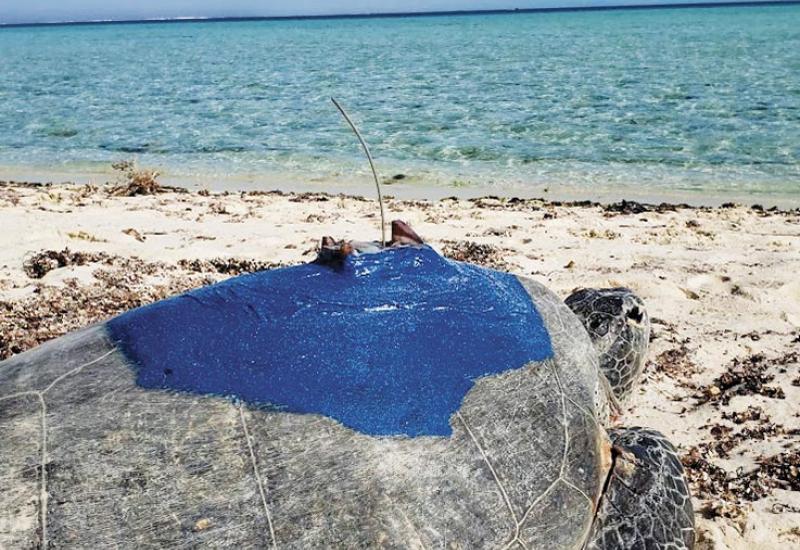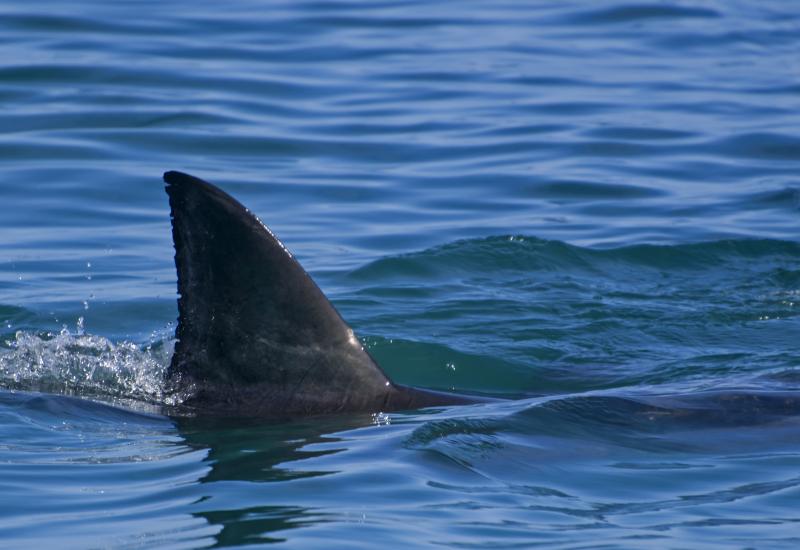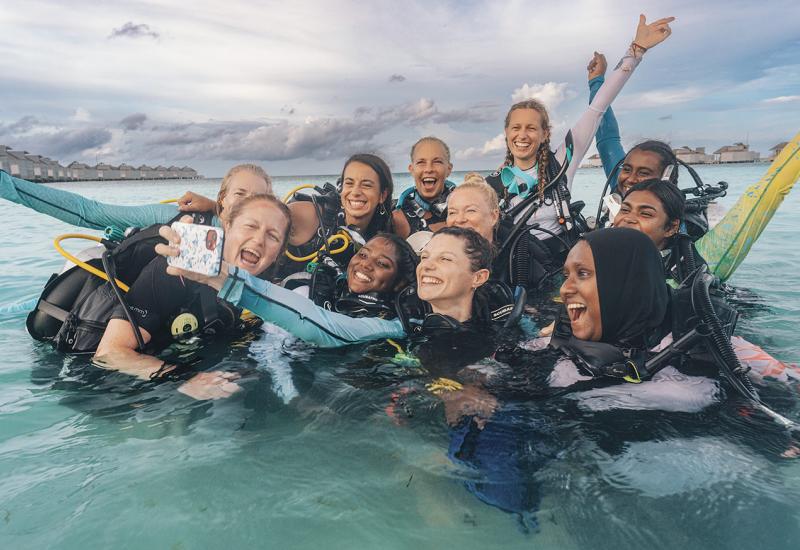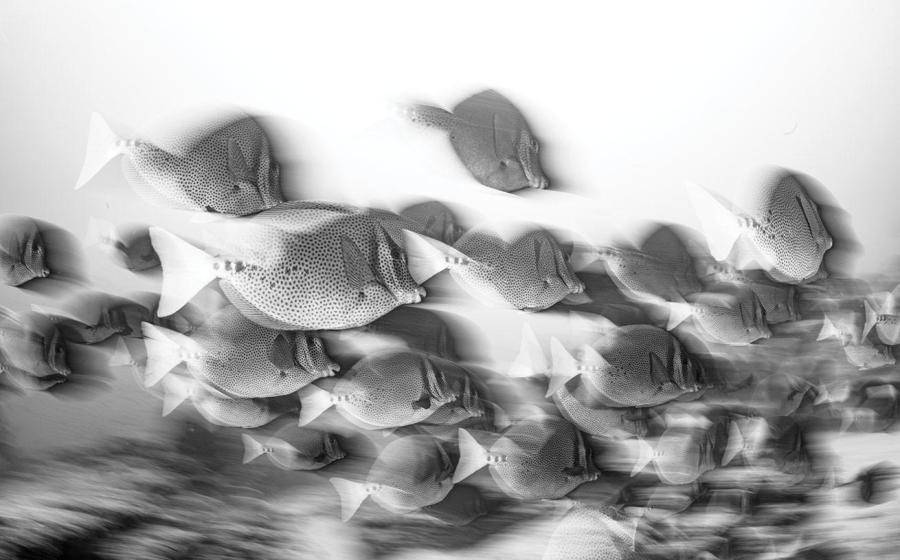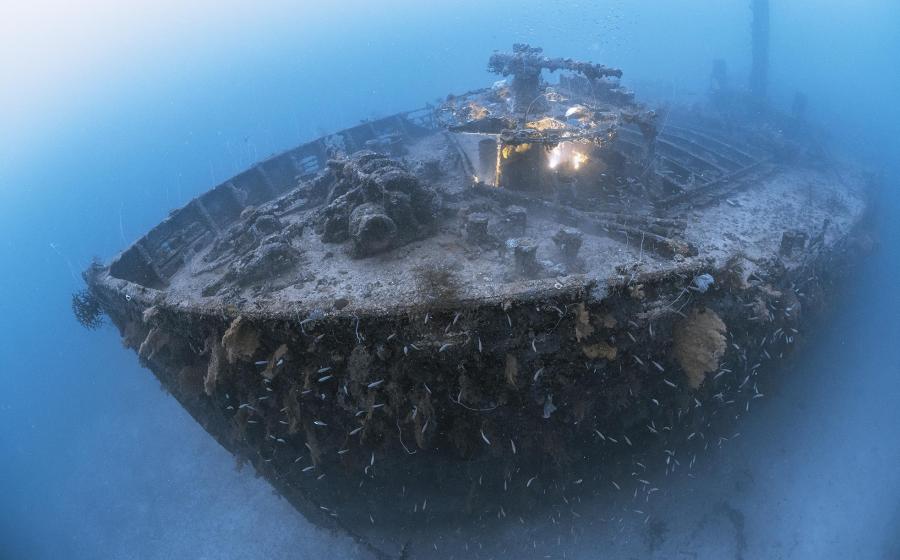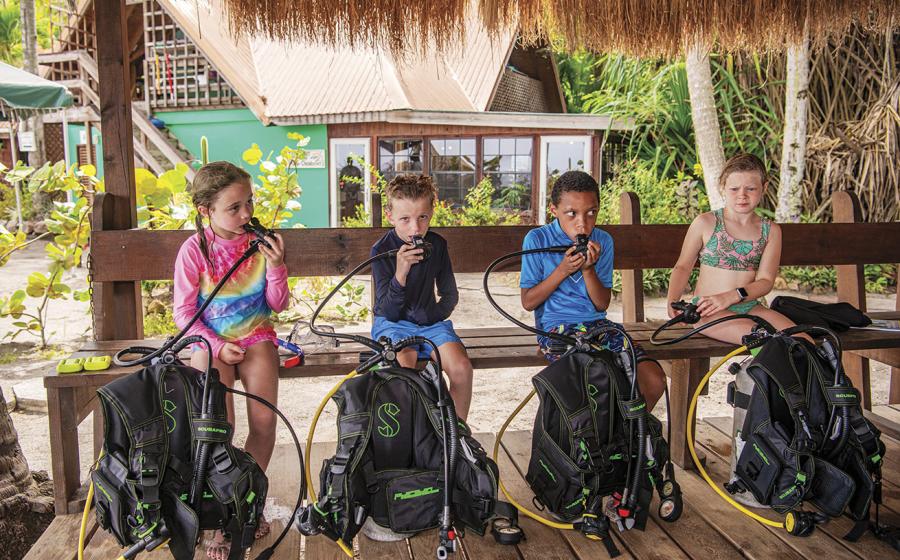Polish Traveler Replanting Corals Threatened by New Maldives Airport

Coral Mission FoundationDivers replant coral from the Maamigili Reef in the lagoon of a nearby island.
Maria Sotek, a Polish freediver and frequent Maldives visitor, has relocated more than 1,100 corals threatened by the construction of a new airport in South Ari Atoll. The project aims to replant 1,800 from the impacted Maamigili Reef to a nearby lagoon on Dhigurah Island.
The rescue mission—run through Sotek’s Coral Mission Foundation and overseen by Karl Fellenius, a marine biologist with more than 20 years of experience in reef relocation—started in April by pulling coral from underneath sand dumped on it to extend the runway.
“Once transported to Dhigurah lagoon, corals are placed onto the resting tables for destressing,” says a mid-summer CMF project update. “When corals stop showing stress symptoms, divers attach them to special steel frames placed on the sandy bottom of Dhigurah Lagoon. This way a new part of the coral reef is being created there. Relocated corals are regularly cleaned from algae and sediment, and their health is monitored continuously.”
The donations and grants supporting the project have been spent to reach this point, so the corals continue to await replanting. Sotek is actively fundraising to complete the project as airport construction continues. It costs $14 to relocate one coral, according to the organization’s project records, and replanting is the most time-consuming part of the process.

Courtesy ImageMaria Sotek
As Sotek continues her emergency rescue mission, she is lobbying the Maldevian government to avoid such time and funding crunches in the future. “The government has granted more than 20 new permits for creating artificial islands. All of them will be built on coral reefs,” she says in a CMF press release, so she is working to “create a situation where any investor responsible for seafloor works has to arrange and finance coral replanting.”
Globally, coral reefs cover 1 to 2% of the seafloor while supporting 25% of marine life. The impacts of climate change—rising water temperatures and ocean acidification— are driving annual coral bleaching events while human stressors like coastal development, boat groundings and runoff are compounding degradation. The number of corals around the world has decreased by 50% since 1950; scientists estimate coral reefs in the western Indian Ocean will completely degrade within 50 years if global warming is not addressed.

